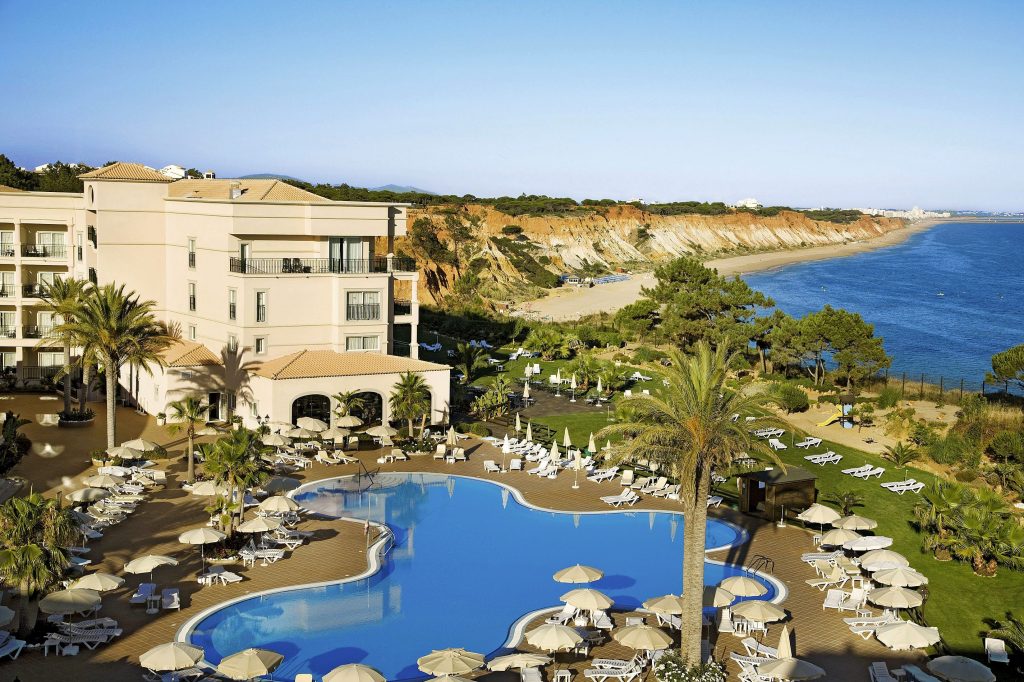Skift Take
There were hopes in some quarters that tourists might start heading back to areas that had fallen out of favor because of terrorism and other geopolitical problems. At this stage it hasn’t happened but it will be worth paying attention to the European “lates” market to see if the resulting lower prices persuade those looking for a deal to return.
Spain and other European destinations are continuing to offset a lack of demand for Turkey and North Africa, according to TUI Group.
For the past couple of years, tourists have been shunning places hit by terrorism and there seems to be no sign of a recovery.
Fortunately for TUI it has other options. Its relatively new fleet of Boeing 787 Dreamliners means that it has been able to access long-haul destinations such as the Caribbean and it is opening new hotels throughout Europe to entice those who want to stay closer to home.
In an interview with CNBC, TUI Chief Executive Fritz Joussen was asked whether certain countries would see a permanent drop-off in tourism numbers.
“I think when you look at the overall customers for H1 you can see that we had around about 8 percent more customers than the year before. So yes it’s true that we shift some demand away from Tunisia, or Egypt, or Turkey into other countries and we are not on a mission. So if customers want to go on vacation… to new destinations be it the Caribbean, or south-east Asia or Spain, for us is it’s perfectly fine,” Joussen said.
“But also in all fairness I think as always countries will come back particularly right now Turkey we see very much increasing trends.”
TUI’s financial year starts in October and like most European tour operators it is loss-making for the first half, making up its profits in the summer months when people actually go on holiday.
In the six months to the end of March, TUI cut its loss by 21.9 percent to $338.6 million (€308.6 million), while turnover increased by 3.3 percent to $7 billion (€6.4 billion).
Looking ahead to the crucial summer period, TUI said that revenue across all its source markets was up by 8 percent with bookings 4 percent ahead of the prior year. It put the increase down to a “growth in demand for Greece, Bulgaria, Croatia, Cyprus, Cape Verde and long haul.”
Brexit: The Good and the Bad
The UK’s impending departure from the European Union does not seem to have had any impact on bookings so far, with TUI saying that “demand for our holidays remains resilient with the percentage of the program sold in line with prior year.”
However, the company has outlined one area of Brexit concern: it’s airline division.
“[W]ith recent press briefings from EU officials stating that there will be no special deal for aviation, our main concern at present is centered around whether or not all of our airlines would, as things stand, continue to have access to EU airspace as now,” the company said in its earnings release.
“We will continue to lobby relevant UK and EU ministers and officials to stress the importance of there being a special deal for aviation to protect consumer choice in both regions, and will assess other steps we might be able to take to ensure the Group is not adversely affected to any material extent in this area.”
The New TUI
Since the merger of the two TUIs in 2014, the enlarged group has transformed itself from a tour operator to a tourism business. Unwanted divisions have been sold off and further inroads have been made in cruise and hotels. The two segments now make up half of the Group’s operating result on a full year basis.
A new TUI Blue hotel opened in Tuscany, Italy earlier this year and further openings are planned in places such as Thailand and Mexico.
“Our transformation to an integrated tourism business is on track. We are delivering strong growth in our hotel and cruise brands,” Joussen said.
The Daily Newsletter
Our daily coverage of the global travel industry. Written by editors and analysts from across Skift’s brands.
Have a confidential tip for Skift? Get in touch
Tags: security
Photo credit: The TUI Blue hotel in Falesia, Portugal. The company has seen customers move away from destinations impacted by terrorism. TUI Blue
